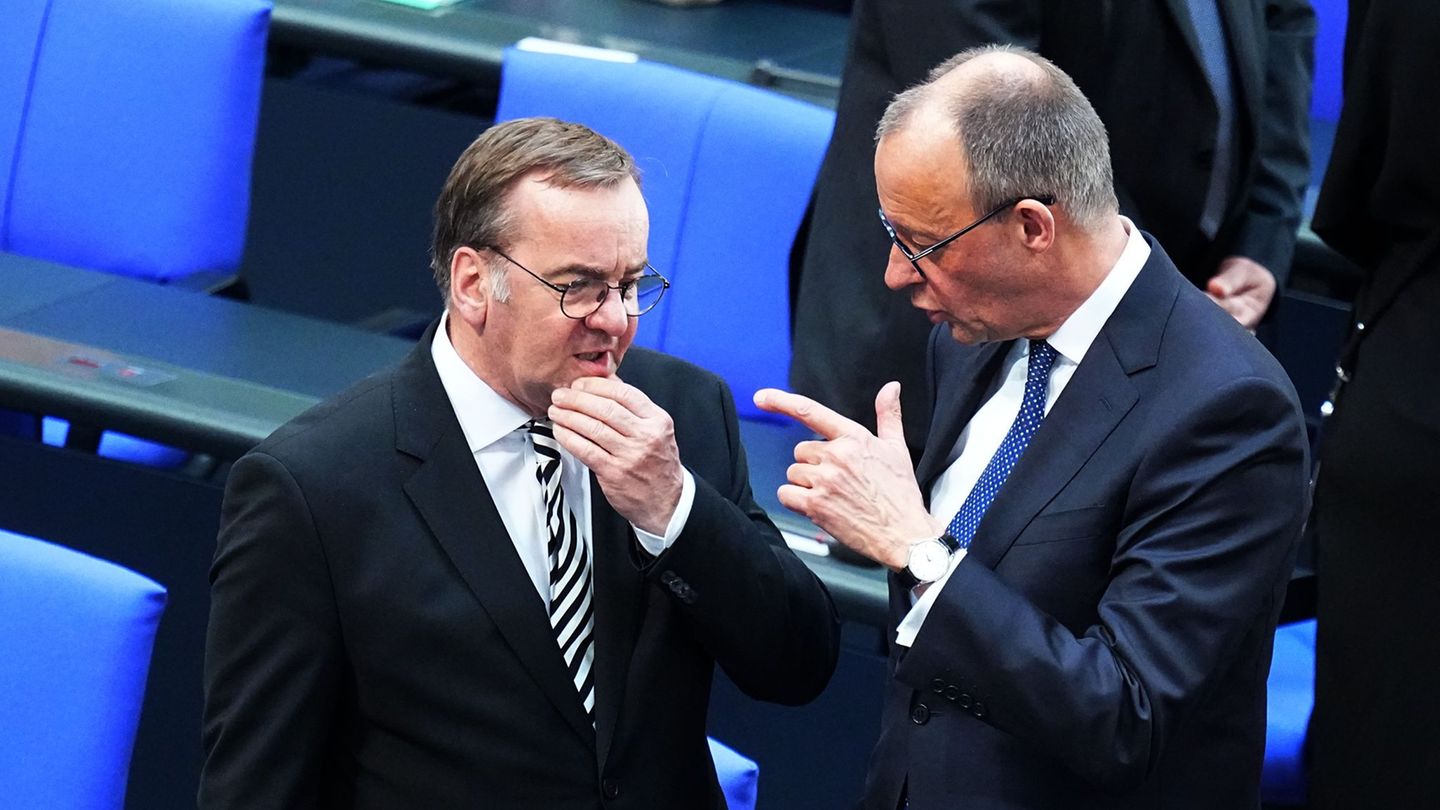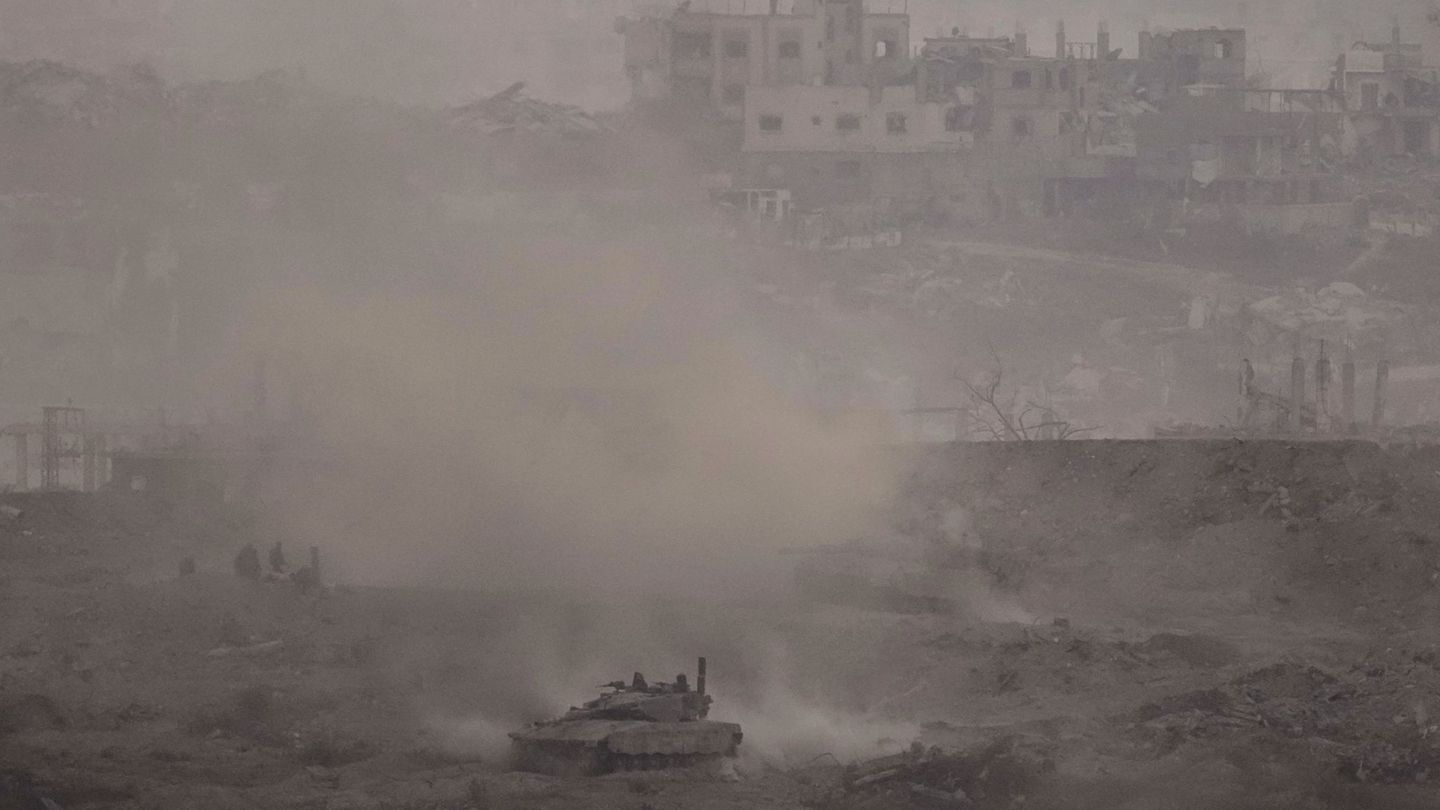Bundeswehr
Merz and Pistorius when listing the Lithuanian brigade
Copy the current link
Add to the memorial list
He is the first Chancellor to be a soldier with the Bundeswehr himself. Today Friedrich Merz has his first group of troops in a new function. The occasion is a very special one.
It is the clearest reaction of the Bundeswehr to the Russian attack war in Ukraine: two years after the decision on the stationing of around 5,000 German soldiers in Lithuania to secure the NATO-East flank, the Panzerbrigade is put into service in the afternoon. Chancellor Friedrich Merz (CDU) and Defense Minister Boris Pistorius (SPD) together from Berlin to the solemn appeal with 800 soldiers in the capital Vilnius Vilnius Reisen.
The troop is new territory: In contrast to its previous abroad missions, the preparation of the Lithuanian Brigade is the first permanent stationation of a troop association abroad.
German history as a reason for stationing
Pistorius announced the step in June 2023 during a visit to Lithuania after a long discussion. At the time, he recalled that Germany was on the eastern flank of NATO until the end of the Cold War and had to rely on the backing of the NATO partners in an emergency.
Today are Poles and the Baltic States in this situation. “And we as the Federal Republic of Germany expressly commit ourselves to our responsibility and our obligation to stand up as a NATO member country, as the largest economy in Europe for the protection of the eastern flank.”
Up to 5,000 soldiers by 2027
The brigade should be fully operational by 2027. A permanent presence of up to 5,000 soldiers is planned, the main location of which is to be a barracks to be built with a military training area in Rudninkai – near the border with Belarus. Until their completion, there will be transitional solutions in Lithuanian barracks near Vilnius.
The soldiers and their families in the big cities of Vilnius and Kaunas should live, where a school and a kindergarten are to be built up. The Bundeswehr has been present in Lithuania since 2017. At the moment, however, around 400 members of the group are stationed there.
Strategically important area for NATO
Lithuania borders on Belarus, which is closely allied with Russia, and the Russian Calining Rad on the Baltic Sea. A narrow NATO corridor from Lithuania west to Poland runs between these two countries-the so-called Suwalki gap, which could fight in the event of an attack. Russia could do the Baltic States by taking it from the rest of the NATO area.
The German troop presence for the small Baltic state with its 2.8 million inhabitants is accordingly important. The Lithuanian army belongs to only 15,000 soldiers, including 3,500 conscripts. It should be 17,000 to 18,000 soldiers by 2030.
Lithuania wants to spend 5 to 6 percent of GDP for defense
The war in Ukraine sees the Lithuanians as a direct danger to national security. The government in Vilnius is therefore massively upgrading the army. The Lithuanian defense spending should move between five and six percent of the gross domestic product (GDP) from next year.
In Vilnius, the Federal Chancellor also wants to come together for a conversation with the Lithuanian President Gitanas Nauseda, which is also participating in the ceremony. “I hope that this will be an important impulse for further improvement in our military cooperation with this very important partner for us,” said Nauseda recently when I announced Merz’s visit.
Merz was with the Bundeswehr for 15 months
For the Chancellor, it is the first visit to the troop in a new function. He is the first Chancellor to be a soldier with the Bundeswehr himself. The CDU politician performed 15 months in 1975 and 1976 at the locations Clausthal-Zellerfeld in Harz, Warendorf and Dülmen in North Rhine-Westphalia and Kusel in Rhineland-Palatinate.
His immediate predecessor Olaf Scholz (SPD) had refused to work, Angela Merkel (CDU) did not have to go to the Bundeswehr and Gerhard Schröder (SPD) as a woman because his father had fallen as a soldier in the Second World War and he was the only son of the family. Helmut Kohl (CDU), like all Chancellors, was already too old when the Bundeswehr was founded and introduction of military service to be drawn in. Helmut Schmidt (SPD) was a soldier in World War II and Ludwig Erhard (CDU) in the First World War.
dpa
Source: Stern
I have been working in the news industry for over 6 years, first as a reporter and now as an editor. I have covered politics extensively, and my work has appeared in major newspapers and online news outlets around the world. In addition to my writing, I also contribute regularly to 24 Hours World.




